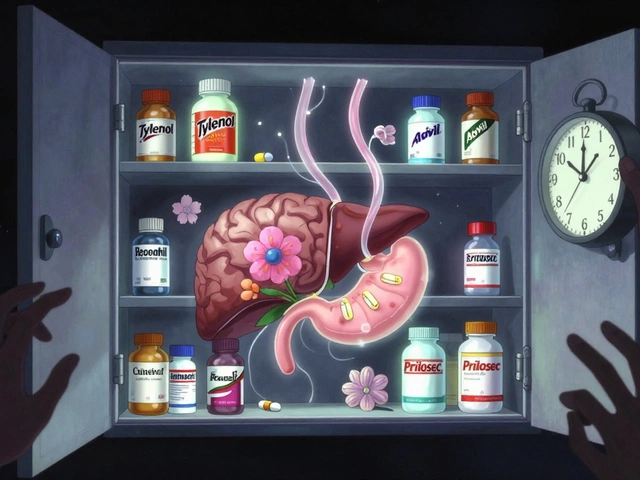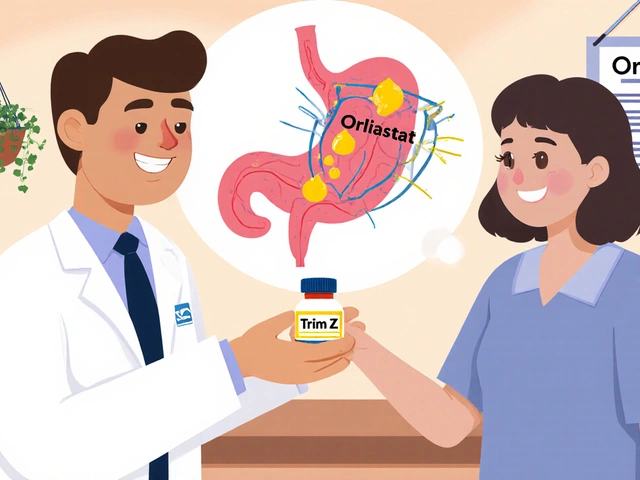Antidepressant Guides & Reviews
If you’re looking for straight‑forward info on antidepressants, you’re in the right place. This tag pulls together articles that explain how these medicines work, what to expect, and how to stay safe while taking them. No jargon, just practical tips you can use today.
Common Types of Antidepressants
Most prescriptions fall into a few families. SSRIs (like sertraline or fluoxetine) boost serotonin, which helps mood stay steady. SNRIs (such as venlafaxine) raise both serotonin and norepinephrine, offering a slightly different feel. Tricyclics are older, work well for some people but can have more side effects. Finally, atypical meds (like bupropion) act on dopamine and can be a good fit if other drugs didn’t help.
Each class has its own pros and cons, so the best choice depends on your symptoms, health history, and how you react to the first dose. Our articles break down the key points so you can talk to your doctor with confidence.
Choosing and Using Antidepressants Safely
Start low, go slow. Doctors usually begin with the smallest effective dose and increase it gradually. This reduces the chance of nausea, headache, or dizziness. Take your pill at the same time each day—morning works for most, but if a drug makes you sleepy, bedtime is fine.
Watch for side effects during the first two weeks. Common ones include dry mouth, mild weight change, or trouble sleeping. If something feels odd, note it and call your prescriber. Most side effects fade as your body adjusts.
Never stop a medication abruptly. Going cold turkey can cause flu‑like symptoms or mood swings. Instead, ask your doctor for a taper plan that slowly lowers the dose over weeks.
Mixing antidepressants with alcohol or other drugs can be risky. Even over‑the‑counter meds like antihistamines might interact. Use our “Hydroxyzine Shortage” guide to see safe alternatives if you need allergy relief while on an antidepressant.
Keep a medication list handy—include the name, dose, and timing. Share it with any new doctor or pharmacist. This simple step helps avoid accidental drug clashes.
Remember, antidepressants are just one part of managing depression. Therapy, regular exercise, and good sleep all boost the benefits of medication. Our “Music Therapy for Sickness Recovery” article shows how adding enjoyable activities can improve mood alongside pills.
Feeling uncertain? Use the FAQs in each article to get quick answers about side effects, how long it takes to feel better, and what to do if you miss a dose. The goal is to make you feel in control, not confused.
Browse the posts under this tag for deeper dives—whether you need a side‑effect cheat sheet, a comparison of SSRIs, or tips on handling a drug shortage. All the info is written to help you make smarter health choices without the medical‑school vocabulary.
Take the first step today: read a guide, jot down questions, and bring them to your next appointment. With the right knowledge, you can find the antidepressant that fits your life and start feeling better faster.
Effexor: In-Depth Guide to Venlafaxine for Anxiety and Depression Relief
This article takes a close look at Effexor, a popular antidepressant, breaking down how it works, who might benefit from it, and what side effects to expect. You'll find practical advice, latest facts, and stories for anyone curious about this medication. The article also covers tips for managing side effects, tapering safely, and what it's really like to live on Effexor. Written in plain language, it's perfect for people considering this medication or just wanting to understand it better. No fluff—just what you really need to know.





